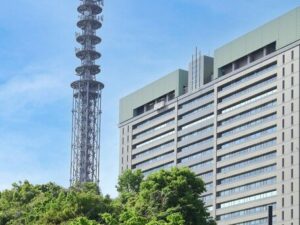Anti-Japanese sentiment in China has been growing by the day since the Fukushima nuclear power plant began releasing contaminated water. In the midst of this situation, a Chinese man has been causing controversy by shooting a video in which he measures the radiation levels of sushi items in front of a Japanese sushi chef.
Photo: Chinese man measuring the radiation level of sushi
A video of a Chinese man measuring the radiation levels of each piece of sushi served by a sushi chef at a famous sushi restaurant in Tokyo, Japan, spread on Chinese social media on November 11. The title of the video was “How much radiation is in sushi?
In the video, the man applied a simple radioactivity meter to each nigiri sushi such as sea urchin, tuna, and octopus. The readings were between 0.12 and 0.14 microsieverts per hour, less than the normal range of 0.3 microsieverts. The man did not care about the fact that the sushi chef was right in front of him, as he was serving an omakase course in which the chef would make the sushi for him on the spot. He also said, “It wasn’t enough to affect my health, but it made me a little nervous when I ate.”
After the video went viral, there was a wave of criticism of the Chinese man on the Japanese Internet. The man said, “This is very disrespectful. If a Japanese person had followed the same logic in a Chinese restaurant, he would have been kicked out long ago.
On the other hand, after the release of contaminated water by Japan, Chinese people have been directly expressing their anti-Japanese sentiments in various parts of the country. A Chinese president of a Japanese restaurant directly destroyed his own restaurant, while another threw stones and eggs at a Japanese school. The Japanese Embassy in China went so far as to issue a notice to Japanese nationals in China, advising them to be cautious in their words and actions, such as not unnecessarily speaking Japanese loudly when going out, and to pay close attention to their surroundings if they need to visit the embassy. A boycott of Japanese products has even appeared, mainly on social media.
According to data reported by BBC correspondent Rupert Hayes on March 25, tritium released by the Qinshan nuclear power plant in China’s Zhejiang Province amounts to about 143 terabecquefins per year, which is the same as the amount of tritium released by the Qinshan nuclear power plant in China’s Zhejiang Province. about 143 terabecquerels per year, which is 6.5 times the total amount of tritium released annually by the Fukushima Daiichi nuclear power plant, 22 terabecquerels. In 2021, the Yangjiang nuclear power plant in Guangdong province is estimated to have discharged about 112 terabecquerels, the Ningde nuclear power plant in Fujian province about 102 terabecquerels, and the Hongyue nuclear power plant in Liaoning province about 90 terabecquerels of tritium, respectively. All of these exceed the amount of tritium expected to be discharged from the Fukushima nuclear power plants.
By Sungmin Park, Reporter
Chosun Ilbo







